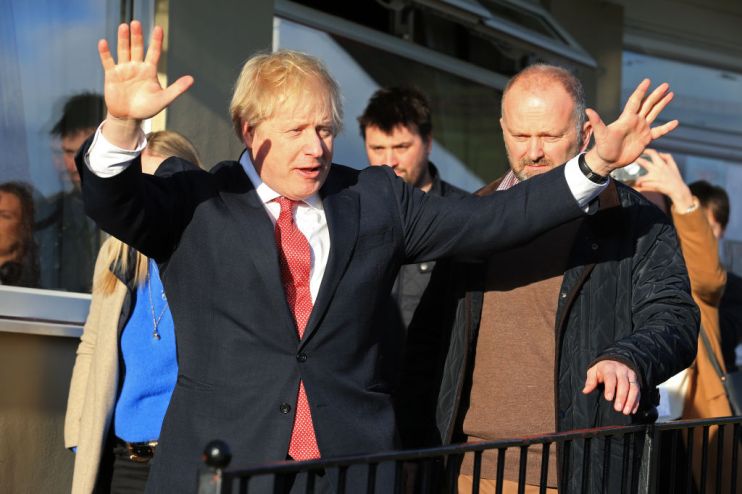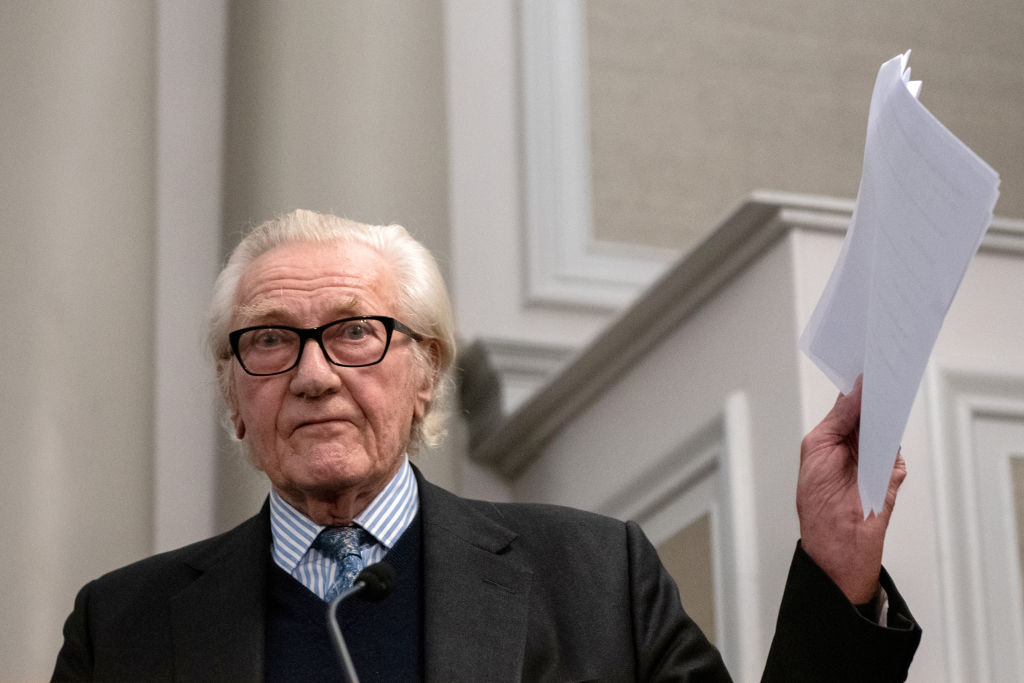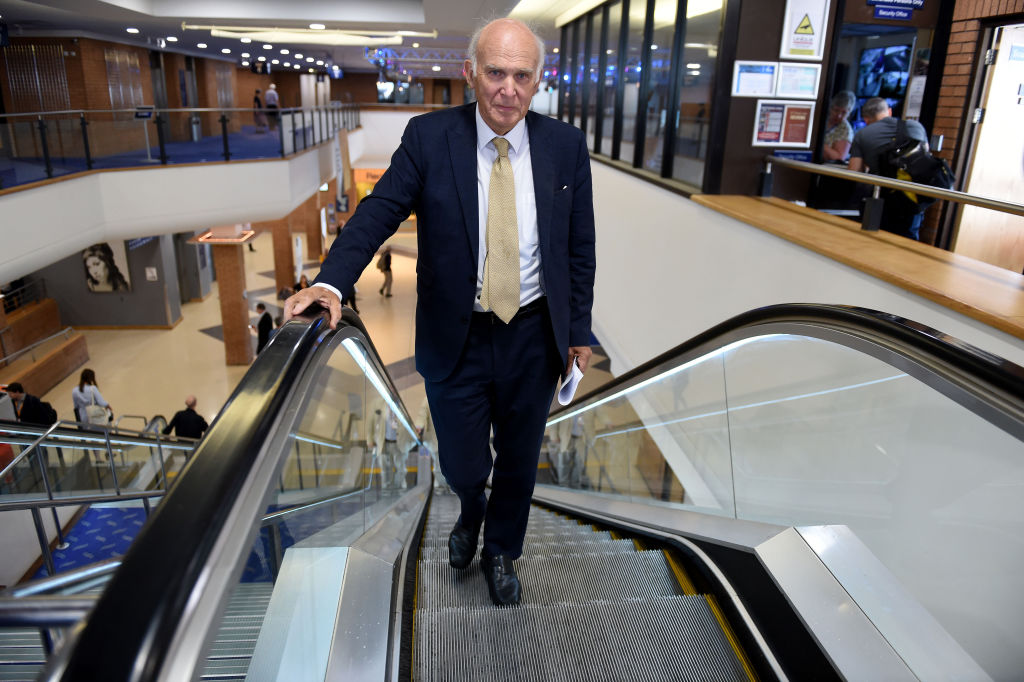A deal by (next) Christmas? Ex-trade bosses weigh up PM’s claims

No delays, no excuses. That was the mantra of Boris Johnson’s hugely successful election campaign. At its heart was an ambitious commitment to get a trade deal with the European Union wrapped up by the end of the transition period – 31 December 2020.
The private view of Brussels bosses is not optimistic. “Eleven months is very unrealistic for such wide-ranging negotiations” was the verdict of EU negotiator Michel Barnier, revealed in leaked private remarks.
Read more: Former trade bosses question Boris Johnson’s trade deal claims
So who’s right? City A.M. asked five former UK trade and business secretaries – all of whom were president of the Board of Trade – their views.
Perhaps unsurprisingly, the group is split along Brexit lines. Remainers Sir Vince Cable, Lord Michael Heseltine, Lord John Hutton, and Lord Peter Mandelson all – with varying levels of gusto – pour cold water on the idea of reaching a satisfactory trade deal by 2021. Brexiter Lord Peter Lilley, on the other hand, deems it “eminently doable”.
However, the former cabinet ministers touch on a number of the same issues. One is the fact that the EU will happily grant Johnson a deal by the end of the year, replete with access to its deep markets, so long as he abides by its rules.

Yet another repeatedly raised issue is that the PM has no such intentions. His Brexit deal with the EU removed the chummier language Theresa May’s had included, saying the future trade relationship would be “ambitious” rather than “as close as possible”.
Former Liberal Democrat leader Cable was UK business secretary (and de facto trade secretary) in the coalition during tortuous trade talks between the EU and US. He says a UK-EU deal could indeed be done “in a very short period of time” if it was “just a very simple agreement to tariff-free trade in areas which are already tariff-free”.
Lilley – trade secretary under Margaret Thatcher and John Major – is in agreement. “This trade deal starts where most other trade deals end up,” he says. Agreements over areas where the two sides diverge on rules and regulations can be “readily done” in a year.
Read more: Boris Johnson thanks north of England for breaking voting habits of a generation
Yet Cable says it would not be so simple. Should the UK and EU diverge, negotiations over “rules of origin” issues would become much more complicated. For example, if the UK agrees with, say, the US to cut tariffs on car parts, then they would come into Britain at a lower rate than into the rest of the EU. To make sure it isn’t undercut, the bloc would then collect duties on British vehicles using those parts. This requires intricate agreements, Cable says.
A major problem is that Britain hasn’t worked out how far it wants to diverge from EU rules in the hopes of securing deals with countries further afield, says former EU trade commissioner Mandelson. He says the government “rhetorically want to go one way but don’t want to face the economic consequences”. Hutton, business secretary under Gordon Brown, says Britain needs a “grown-up debate” about the sort of deal it wants.
The future of the City
Another commonly raised issue is financial services, the sector which makes up a whopping seven per cent of the UK economy. The EU’s outgoing finance commissioner Valdis Dombrovskis warned earlier this month in the Financial Times that the UK’s rights to access the bloc’s markets could be withdrawn if Britain engaged “in some kind of deregulation”.
Former EU finance commissioner and current Tory peer Lord Jonathan Hill has argued that Britain’s financial eminence means it should go its own way and refuse to be rule-takers. Yet he has said there is a trade-off: worse market access has costs.

Cable worries about the time-frame, given the complexities of finance. “There is a big gap in expectations between what the City would like and what’s likely to come out of a trade agreement that was negotiated quickly,” he says.
Former trade secretary and deputy PM Heseltine says France, the Netherlands and Germany all “have ambitions for the market that is presently represented in the City of London”. Hutton says market access will “come with a quid pro quo: ‘You want access here, we want to do this”. This will take time, he says.
A daunting task
The UK also faces another, simpler challenge. Due to EU membership it hasn’t negotiated a trade deal for itself in decades. Lilley says Britain has some good people – currently trade secretary Liz Truss, for example.
Yet Hutton says the UK’s experience pales compared to the EU’s. “Let’s be honest,” he says, “they are the best and most skillful trade negotiators in the world and we are the new kids on the block.”
Read more: Donald Trump: UK free to strike ‘massive’ trade deal with US after Tory election win
Johnson’s newfound majority is likely to give him a stronger hand. The hardline Brexiters within the party pushing for Johnson to go for an effective no-deal Brexit at the end of 2020 have been weakened. With the ability to get whatever he’d like through parliament, Johnson may go slightly ‘softer’ and could even ask for an extension in July.
There is one certainty: that the PM faces a daunting task when the post-election glow has faded. Whether he achieves a deal or not, 2020 will not be an easy ride for the government. Heseltine says talks will be like all negotiations, with each player out for itself. “At every stage there will be political controversy.”